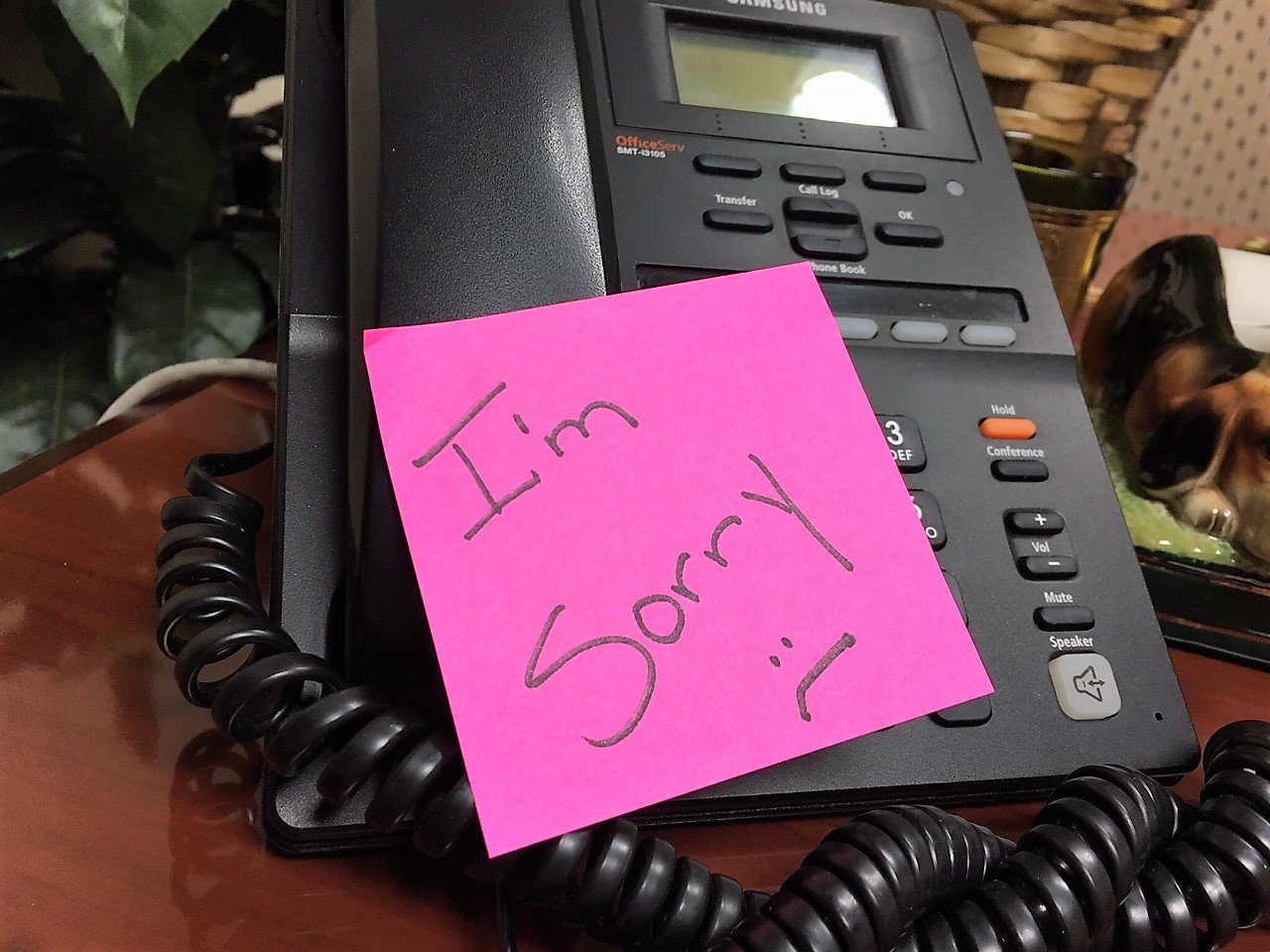How to Deliver an Authentic Apology

In light of a few public snafus that have been heavily covered in the media, it’s important to know the value of a genuine apology.

One case happened this week when United Airlines forcibly removed a passenger from their airplane, causing a media storm and a great deal of turbulence for the company on the ground. The airline’s stock dropped sharply and the backlash was severe. People all over the world watched the difficult moments during, and after, play out.
The high-profile incident highlights the importance of a proper and well-timed apology. Here are 9 etiquette tips on how to gracefully accept responsibility and express your regret.
Act Quickly
Once the damage is done, move to make it right as soon as possible. Gather facts if you were not the one who personally committed the error. Often times an employee may commit a professional faux pas, and you must take responsibility. Avoid placing blame on someone else or inferring their behavior had something to do with your misstep.
Avoid Making Excuses
For the other person to heal, address the issue and acknowledge your actions were out of line. Take a careful look at the part you played in the blunder.
Be Sincere
If the apology is not authentic, it will be apparent the sentiment is meaningless. Saying “I’m sorry you feel that way,” negates the apology and places blame on the other person. Rather than saying, “I’m sorry I hurt you,” you can say, “I’m sorry for my behavior. I was wrong and I want to apologize.” Humility is the key to genuine regret.
Do It in Person
You want to give your undivided attention when making an apology and leave technology out of the mix. A post on social media is not the same as a heartfelt visit. Allow the other person to hear your voice and see your facial expressions. A text is the last option when it comes to expressing sincere remorse.
Avoid Downplaying the Damage
Your actions may not have seemed like such a big deal to you, but when someone else’s feelings are involved, it’s difficult to gauge sensitivity and how someone else should feel or react. Take responsibility for what part you played in the scenario.
Share How You Plan to Modify Your Behavior
Be clear on what steps you will take to avoid the same or similar slip-up moving forward.
Better Late Than Never
You may feel you have missed “the window of opportunity” to offer an apology, but that doesn’t mean you shouldn’t address the concern. If time has passed, you can still attempt to right a wrong. The old saying holds true, “Better late than never.”
Send a Note
An apology to a client or friend may require putting your thoughts in writing. A follow-up letter shows you are serious about making the situation better and acknowledges the importance of the relationship. Reiterate your remorse and how you desire to mend the relationship.
Allow Time for Healing
Don’t expect a quick fix. An apology won’t immediately right the wrong. However, it is a step in the right direction. It may take more time than you would like, but by doing the right thing, you have started the wheels in motion.
The right kind of apology will not only be appreciated, but it will go a long way in repairing a damaged relationship.
You may also like Apology Etiquette: It’s Never Too Late. For more of Diane’s etiquette tips read her posts on Inc., subscribe to her articles on The Huffington Post, “like” The Protocol School of Texas on Facebook, and follow her on Pinterest, Instagram and Twitter. Buy her new book, Modern Etiquette for a Better Life here.







